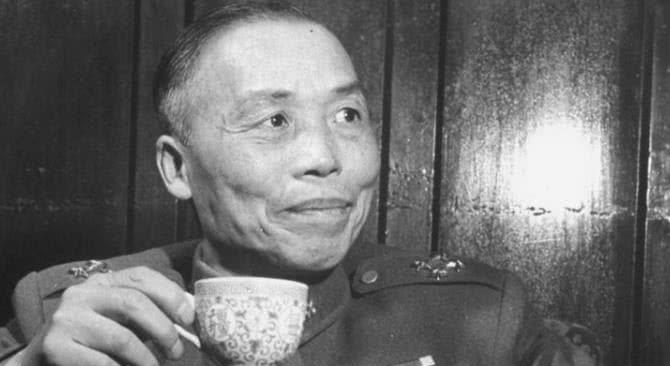In 1938, the Japanese army was limited in strength, and when their Central China and North China Fronts requested reinforcements because they were insufficient, the Japanese army could not come up with troops. But in 1945, the number of Japanese divisions was rapidly expanding, and the number of troops could be said to be quite large, but these troops surrendered to the American army, and none of them threw themselves into the real war.

Thinking about the War of Resistance Against Japan, Li Zongren once wrote: "If Japan had been able to quickly concentrate its forces at that time and adopt blitzkrieg tactics, it would have been very likely to defeat our field army, drive out some scattered guerrillas, and dissolve the situation in which our army as a whole resisted the Japanese army." ”
In the early days, the Japanese did not do this, and it did not concentrate the entire country at the beginning. Even Japan, which was quite militarily powerful and militarily advanced at the time, made four major mistakes that ultimately led to defeat.
First, the Japanese army's mistakes in strategic judgment
In the War of Resistance Against Japan, the mistake of the Japanese army in strategic judgment was the first mistake made by the Japanese army. It was precisely because of such a mistake in judgment that the Japanese army mistakenly believed that the Nanjing government would ask them for peace as long as they occupied Shijiazhuang and Pingjin. But the Nanjing government, which was extremely resistant, did not seek peace, but continued to fight. In this way, all the plans of the Japanese army were disrupted at once, and the Japanese army made a mistake in judgment in strategy.
The Japanese army, whose plans had been disrupted, could only increase its strength, and at this time the Japanese army began to attack from east China, but the Japanese army had no plan to use troops in east China before. At the time of the Battle of Songhu, the Japanese army was constantly sending troops to attack, including the army, navy and air force. Later, even if Shanghai and Nanjing fell, the Nanjing government still did not surrender, which made the Japanese army feel even more confused and confused.
Second, the Japanese army made tactical mistakes
In the war in East China, the Japanese army also made mistakes in tactics, and this tactical error of the Japanese army was called "adding oil". There are also strategic problems, for this war of aggression against China, the Japanese army did not make overall arrangements in the war strategy at the beginning. In terms of war, the Japanese army belongs to a method of play in which loopholes are filled wherever loopholes appear, and basically where there is conflict and war, it sends troops wherever there is.
From this, we can see that the Japanese army has no tactical deployment, is in a state of taking one step at a time, and has no plan for the next step. In the Battle of Wuhan, Japan thought it would successfully capture the city of Wuhan and then let the Nationalist government surrender and get a good result. So after the Nationalist government arrived in Wuhan, the Japanese army sent a considerable number of troops to attack Wuhan, but the Japanese army never expected that even if Wuhan also fell, the Nationalist government still did not surrender.
Third, the Japanese army made mistakes in its strategic approach
In the War of Resistance Against Japan, the third mistake made by the Japanese army was in the strategic principle, they revised the original strategic policy, and the revised strategic policy was to "feed the war with war." Such a strategic approach is wrong, and they are not very firm in military strategy. Thus, in 1939, the Japanese army was in a state of armistice recuperation.
The Japanese army, which was in a state of armistice and recuperation, was snatching up military resources everywhere, and the Japanese army was also trying to control our army and to shake the morale of our army on the battlefield. But the result was diametrically opposed, and the morale of our army could be said to be getting stronger and stronger after the setback.
Fourth, the materials needed militarily cannot be obtained in a timely manner
This final fourth mistake was caused by the strategic approach of the Japanese forces ahead. It was precisely because of Japan's strategic principle of "feeding the war with war" that Japan was unable to defeat China, so that the materials he needed militarily could be obtained from other places through China in a timely manner.
Later, the contradictions between Japan and the Nationalist government became even more intense. Because Japan could only continue the war if it had rapid access to military supplies. In 1941, the Japanese army caused great dissatisfaction in the United States, and subsequent negotiations between the United States and Japan also failed.
Summary: In the War of Resistance Against Japan, these military mistakes of Japan were really a wake-up call for other countries, and Japan, which was quite strong militarily at that time, led to a series of mistakes that led to the disastrous defeat of its own country in the war. In fact, from this series of historical events, we can find that many of Japan's mistakes in this regard can be avoided.